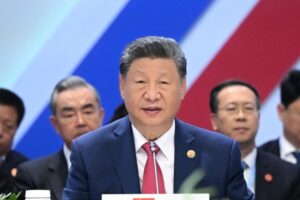
In a significant change on the world scene, the G20 Summit is about to make history by becoming the G21 with the inclusion of the African Union (AU).
This step, proposed by India, reflects a growing recognition of the importance of representing the global south.
The African Union, made up of 55 member countries, will join the ranks of the world’s 20 largest economies this week. The Prime Minister of India, Narendra Modi, championed this initiative, stressing that the success of any plan for the future of our planet depends on the inclusion and recognition of all voices.
However, while this transformation is cause for celebration, there are some within the AU who question the tangible impact of joining the G20. One of the main diplomats of the African continent points out that Africa is vast, with many challenges, economies and communities. In this context, the diplomat expresses his doubts that the inclusion in the G20 directly addresses the specific concerns of the Union.
Complexities of the African Union
Lack of political cohesion. Member countries face unique challenges, some internal and others stemming from regional disputes. According to publicly available information, for example, Sudan is grappling with a military conflict displacing millions of people, Rwanda is facing political restrictions with opposition members in prison, and Morocco and Algeria are locked in a territorial dispute over the Occidental Sahara.
The AU also has eight regional economic committees (RECs), each with its own structure and function. These factors make it essential to consider the intricacies of the internal dynamics of the AU.
Indian Prime Minister Narendra Modi to attend ASEAN-India Summit in Indonesia
Senegal, which currently holds the AU presidency, played a key role in expressing its desire to join the G20. The formal decision to seek G20 membership was taken during the February 2023 AU Summit, with the support of Macky Sall, President of Senegal and then AU President. He is expected to arrive in New Delhi to participate in the G20 Summit.
The AU also has eight regional economic committees (RECs), each with its own structure and function. These factors make it essential to consider the ins and outs of the internal dynamics of the AU.
Some also question the inclusion of two AU member countries, Somaliland and the Saharawi Arab Democratic Republic (SADR), as these two are not recognized by the United Nations. India does not recognize SADR either. Some African Union countries argue that these two entities should not be part of the AU when it becomes a member of the G20.
Despite the diversity and differences among African nations, the transition from the AU to the G21 together with the G20 will be a reality on September 9, 2023.
Note: The article was originally published in English in the Financial Express, and its reproduction in Spanish is done with the direct authorization of the author. Link to the original article: https://www.financialexpress.com/business/defence-g20-expansion-the-arrival-of-g21-with-the-african-union-3234394/

She is a senior journalist working at The Financial Express Publications. In a career spanning nearly three decades, she has covered diplomatic and strategic affairs, as well as the defense and aerospace sectors. She is an expert in Latin America and the Caribbean.
Source: https://reporteasia.com/destacado/2023/09/07/ampliacion-g20-g21-union-africana/

